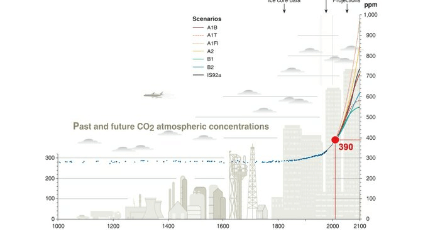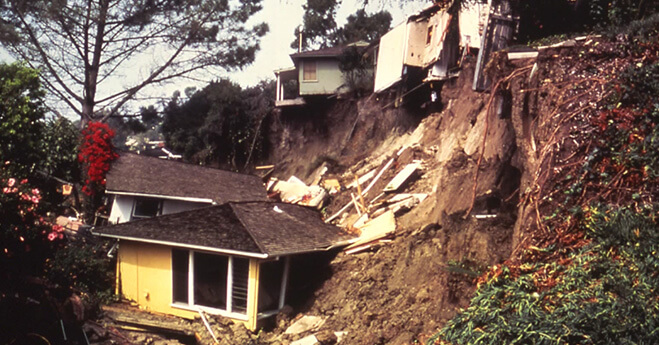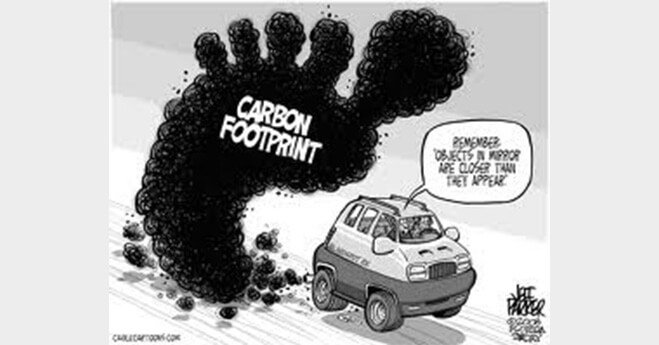Join the Growing Supply Chain Trend on Voluntary Carbon Disclosure to CDP

The supply chain is definitely one of the top solutions a company uses to address the issue of climate change. However, as reported by CDP in its 2013-2014 CDP Supply Chain Program Research Initiative, reducing a supply chain’s greenhouse gas (GHG) emissions still remains to be a formidable challenge.
More Time Means More Money: Why Every CDP Point Matters

In my experience, many companies are reluctant to spend the additional costs upfront, but what they don’t know is improving their CDP performance pays off in the long term.
Is Setting Up a Low Carbon Vision Possible?

One of the greatest challenges that businesses face today is not brought on by a financial meltdown, high taxation or lack of public interest, but by climate change.
Sustainability Matters: Sustainability, Love, and Rock ‘N’ Roll

The following article is part of the ongoing Sustainability Matters series on the FirstCarbon Solutions (FCS) blog, which focuses on those who share a commitment to sustainability, the environment and our planet. The series concentrates on companies and organizations that conduct routine, everyday business in an exceptional, sustainable manner, as well as those offering unique products and services in a sustainable fashion. FCS hopes that the Sustainability Matters series can open eyes to those striving to make a difference. Click here to find previous articles from the Sustainability Matters series.
How to Balance Corporate Sustainability and Financial Stability

In this age where corporate sustainability has been moving to the core of the business realm andseveral macro trends shift the nature of global economic activity, organizations and managers must recognize the need to include sustainability and environmental engagement (disclosure for instance) in their decision-making process.
CDP: Standing Out among other Sustainability Consultants

Many businesses know the principle of “majority rules” – a decision rule where 50% plus 1 of an organized group is able to affect an outcome to their favor. Accordingly, in a recent GreenBiz Intelligence Panel survey, the majority of the group rated CDP as the most credible and important. Moreover, the work done by CDP has been unanimously identified as the most helpful and beneficial among other reporting frameworks. Receiving 67% of respondents’ nod, they all agreed that when it comes to sustainability reporting frameworks, CDP is simply one of the most valued.
Calculating Greenhouse Gas Emissions – 5 Tips to Speed Things Up!

Recently, a company posted on 2degrees Network’s forums, in search of a more efficient approach to GHG data collection. The said company had successfully implemented a carbon reporting program internally, but was struggling with collecting utility consumption data manually.
Judge Rules on the Adequacy of San Diego County’s Climate Action Plan

Climate Action Plans identify a set of strategies intended to guide local government or community efforts in reducing greenhouse gas emissions.
Innovative Carbon Software Launched to Measure Greenhouse Gas Emissions in Food Service

Collaborating with Compass Group, the world’s leading food and support services company, FirstCarbon Solutions developed and launched the web-based software tool to support Compass Group’s Carbon FOODPrint tool kit. Carbon FOODPrint is designed to help Compass Group’s food operations staff lower their environmental impact and operational costs and currently boasts users including well-known companies such as SAP, and colleges, including Auburn University and Green Mountain College.
Carbon Emissions Cap and Trade in California is Here to Stay

In October of last year I touched upon the inaugural cap and trade program California was implementing as a part of AB 32 requirements. Since its inception, on January 25, 2013, the San Francisco Superior Court, Judge Ernest Goldsmith presiding, denied a challenge to the California Air Resource Board’s (CARB) Cap and Trade Regulation. Citizens Climate Lobby and Our Children’s Earth Foundation v. CARB, Cal. Super.Ct., No CGC-12-5195544 (Jan. 25, 2013).
Sub-Metering – Effective Energy Management With Cost Reduction
Each month, every building receives an electricity bill. Although the payment of this bill is vital for a company to continue operating, it contains numerous tidbits of information that are entirely useless to the reader. For instance, “Regulatory Asset Recovery Rate Rider” is provided on the bill, but what does this mean to a restaurant owner? What value does your electricity invoice provide you except a payment amount and due date? One thing about electricity and other utilities, unlike anything else we purchase, is that we pay for utilities after we have consumed them, without knowing how much we consumed. Deploying an electricity sub-metering system will help you understand where your electricity costs are coming from and help make sense of your bill and why you are paying so much.
Case Study: Environmental Planning of Dockside Green, Victoria, BC

Dockside Green is a 15-acre sustainable harborside community located in Victoria, British Columbia. This development is a master-planned waterfront community that is designed to reflect a more responsible approach to planning with the environment in mind. It includes a total of 1.3 million square feet of residential, office, retail and commercial space. Dockside Green is the first community ever to target LEED Platinum certification for buildings developed in a master-planned community.
CSR Reporting Solutions in Regulated Industries

Within the recent past, corporate social responsibility (CSR) has become increasingly topical, breaking the perception that it considers only philanthropy. Now, CSR is fundamentally about how companies integrate philanthropy along with their core business practices, and public policy dialogue, as reported in a Harvard Kennedy School article. Moreover, according to an article in the Journal of Business Ethics, CSR presents the following four dimensions:
Sustainable Supply Chains – It’s Not Easy Making Them Green

Supply chains are essential components in every organization, as they provide the basic building blocks that allow us to produce and deliver our products and services. Whether you’re a global organization or a small business trying to meet market demand for the upcoming holidays, or show the world that you are a good corporate citizen, successfully understanding and working with your supply chain is important. And understanding the sustainability of your supply chain and all the trade-offs inherent is a dynamic that is here to stay.
After the Presidential Election: Carbon Management and Climate Change

These days, many of us approach the time after a US presidential election with a sigh of relief. I believe most of us, however, simply request that our government governs, does the work of the people, and ensures our great nation continues to progressively move forward. While learning more about the candidates by listening to […]
Nordic Region Announces Investor Scores for Carbon Emissions

The Carbon Disclosure Project (CDP) works with thousands of companies worldwide to achieve a more sustainable environment. FirstCarbon Solutions has teamed up with CDP to produce carbon footprint scores for many of these companies. Participating companies were asked to complete a questionnaire of CDP requirements. The answers were then used to compile disclosure and performance scores. These scores help to encourage companies to increase emissions measurement and information disclosure, ultimately improving management of environmental risk. This article discusses the score results for the Nordic region, which includes Denmark, Finland, Norway and Sweden.
DACH Region Announces Investor Scores for Carbon Emissions

The good news upfront: the majority of companies from the DACH region today recognize the business case for evaluating, reporting and managing issues related to carbon emissions reduction. 69% of all 184 responding companies have received a CDP Carbon Disclosure Score above 50 in 2012, meaning they not only provide more than half of the data required to manage climate change, but also enough information to be judged on their actual climate protection performance (CDP Carbon Performance Band).
The Role Air Quality Requirements Play in High Gas Prices

This month, Californians have been saddled with historically high gas prices. At over $4.66 for a gallon of regular gasoline, the average gas price in the state is not only the highest in the United States, but is also a record for California. While gas has resided north of $4 per gallon for some time, the seemingly overnight sharp rise in prices has been attributed to refinery, pipeline, and delivery disruptions.
Addressing Environmental Constraints in Development Plans

Thoroughly evaluating environmental constraints and associated requirements and regulations is essential to any successful land-use plan. In the case of private development, understanding environmental constraints and the cost and feasibility of potential mitigation is key to understanding the true value of real property and whether a project will “pencil out”. Likewise for public agencies, without a working knowledge of the underlying environmental hurdles and associated mitigation costs, the land plans of communities won’t be implemented, and the future vision of the community unrealized. Evaluating potential environmental impacts early, during land acquisition and site design, avoids expense and lost time for development projects.
The Impact of AB 32 Compliance on Carbon Management in the US

With its snow-capped mountains, expansive deserts, fertile valleys, and television and movie-worthy beaches, California has it all when it comes to ecological diversity. Assuring that these resources remain for generations to come has been the impetus behind some of the most stringent environmental regulations in the nation. Over the course of the latter half of […]
How to Make it Easier to Comply with UK Mandatory Carbon Reporting?

Not wishing to sound flippant but the answer is simply, “Start Now!” Companies that are mandated by CRC Energy Efficiency Scheme are well versed in capturing their carbon data. This is the second real year; and these companies will have either engaged with a software provider, or they are still using Microsoft Excel sheets and perhaps looking […]
Using Carbon Management Software to Maintain Sustainable Supply Chains

Over the past 10 years, global organisations have taken steps to address global climate change with central carbon reduction initiatives – this is well known. But it is only recently that we have started to see companies, globally, truly start to collaborate and engage with their suppliers and external stakeholders in order to reduce the embedded environmental and social impacts across their value chains.
Use of AB32 Compliance for NEPA Purposes

Californians were introduced to Assembly Bill 32 (AB 32) in 2006, when the California Global Warming Solutions Act was adopted. At first, environmental practitioners scrambled to understand what this regulation meant for their projects, particularly in the realm of compliance with the California Environmental Quality Act (CEQA), and in City and County land use planning and discretionary actions. Six years and a myriad of opinion pieces and guidance documents later, the impact of AB 32 on a project or plan-analysis level is, if not well understood for most actions, at least navigable.
The Who, What, When, Why and How of UK Carbon Reporting & CRC Scheme

There are two carbon management schemes – The UK Government have closed the public consultation period to simplify the CRC Energy Efficiency Scheme and have recently opened the consultation period for Mandatory Carbon Reporting for the top 1,100 – 1,800 or so FTSE quoted companies. The CRC Energy Efficiency Scheme is in its second year with teeth. The previous years to some were considered the practice rounds. The first companies were fined for non-compliance in their 2010/11 submission – sharpening up the naysayers!
Mandatory UK Carbon Reporting & CRC Energy Efficiency Scheme

A Coordinated Approach or Confusion The UK government have closed the Public Consultation period to simplify the CRC Energy Efficiency Scheme (formally known as the Carbon Reduction Commitment) and recently opened the consultation period for Mandatory Carbon Reporting for the top 1,000 or so FTSE quoted companies. At FirstCarbon Solutions, we are watching the outcomes closely.
Top Three Tips for Projects Going Through Greenhouse Gas CEQA Review

Seven years ago, addressing greenhouse gas emissions or climate change in California Environmental Quality Act (CEQA) review documents was unheard of. But not now; not since California’s Assembly Bill 32 (AB 32) was passed in 2006 and the long circuitous process of determining what it meant at the project level began.
Sustainable Supply Chains: 5 things you need to know

There is only so much that a single organization can achieve in order to improve the impact it has on the environment or society, without collaborating with the wider aspects of its supply chain. In this article we will discuss five key items to consider about sustainable supply chains.